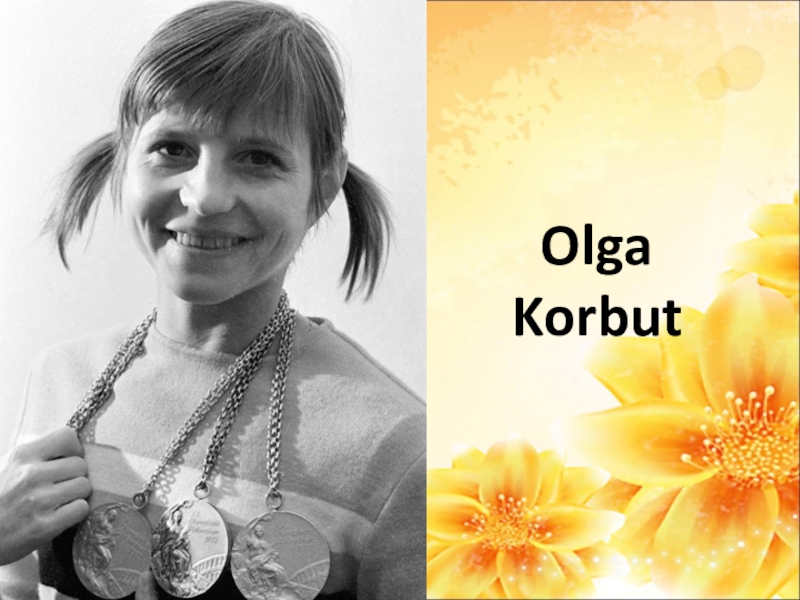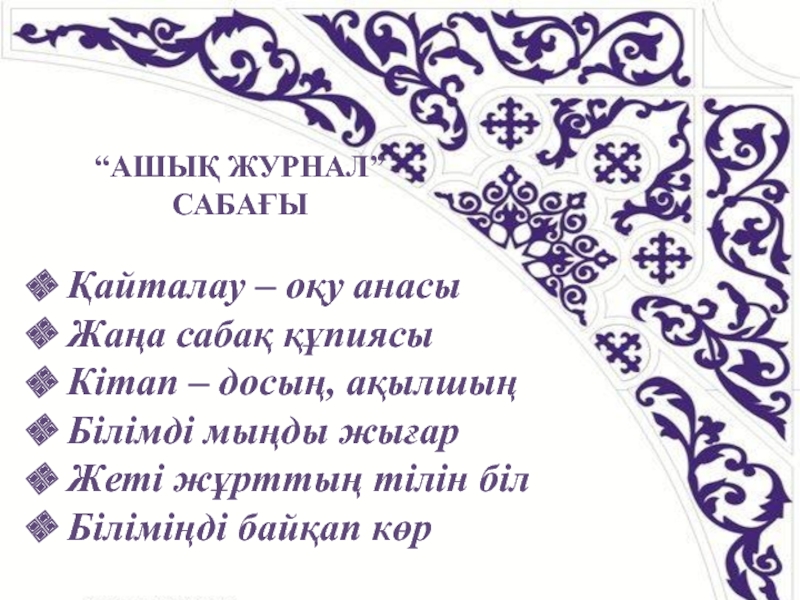- Главная
- Разное
- Образование
- Спорт
- Естествознание
- Природоведение
- Религиоведение
- Французский язык
- Черчение
- Английский язык
- Астрономия
- Алгебра
- Биология
- География
- Геометрия
- Детские презентации
- Информатика
- История
- Литература
- Математика
- Музыка
- МХК
- Немецкий язык
- ОБЖ
- Обществознание
- Окружающий мир
- Педагогика
- Русский язык
- Технология
- Физика
- Философия
- Химия
- Шаблоны, фоны, картинки для презентаций
- Экология
- Экономика
Презентация, доклад по английскому языку Great vowel shift
Содержание
Great vowel shift - the systemic change in the pronunciation of English vowels (in phonetic terms, the raising and fronting of the long, stressed monophthongs) that occurred in England during the late Middle English period (roughly
Слайд 2Great vowel shift - the systemic change in the pronunciation of
English vowels (in phonetic terms, the raising and fronting of the long, stressed monophthongs) that occurred in England during the late Middle English period (roughly the period from Chaucer to Shakespeare).
Слайд 3GVS was first studied by
Otto Jesperson
Otto Jespersen (1860 –1943) was
a Danish linguist who specialized in the grammar of the English language.
Слайд 4The reasons of GVS:
the mass migration to south east England after
the Black Death (1348-1350);
a sudden social mobility after the Black Death;
the change of language of the ruling class;
the Hundred Years’ War (1337-1453).
a sudden social mobility after the Black Death;
the change of language of the ruling class;
the Hundred Years’ War (1337-1453).
Слайд 5The principal changes:
• Middle English [aː] (ā) fronted to [æː] and then
raised to [ɛː], [eː] and in many dialects diphthongised in Modern English to [eɪ] (as in make).
• Middle English [ɛː] raised to [eː] and then to modern English [iː] (as in beak).
• Middle English [eː] raised to Modern English [iː] (as in feet).
• Middle English [iː] diphthongised to [ɪi], which was most likely followed by [əɪ] and finally Modern English [aɪ] (as in mice).
• Middle English [ɔː] raised to [oː], and in the eighteenth century this became Modern English [oʊ] or [əʊ] (as in boat).
• Middle English [oː] raised to Modern English [uː] (as in boot).
• Middle English [uː] was diphthongised in most environments to [ʊu], and this was followed by [əʊ], and then Modern English [aʊ] (as in mouse) in the eighteenth century
• Middle English [ɛː] raised to [eː] and then to modern English [iː] (as in beak).
• Middle English [eː] raised to Modern English [iː] (as in feet).
• Middle English [iː] diphthongised to [ɪi], which was most likely followed by [əɪ] and finally Modern English [aɪ] (as in mice).
• Middle English [ɔː] raised to [oː], and in the eighteenth century this became Modern English [oʊ] or [əʊ] (as in boat).
• Middle English [oː] raised to Modern English [uː] (as in boot).
• Middle English [uː] was diphthongised in most environments to [ʊu], and this was followed by [əʊ], and then Modern English [aʊ] (as in mouse) in the eighteenth century
Слайд 7Exceptions:
ea [iː] in words great,
break, steak, swear, and bear;
the word father failed to become [ɛː];
The word broad, which failed to become [oʊ].
The word room (spelled as roum in ME) is an exception to the shifting of [uː] to [aʊ].
the word father failed to become [ɛː];
The word broad, which failed to become [oʊ].
The word room (spelled as roum in ME) is an exception to the shifting of [uː] to [aʊ].

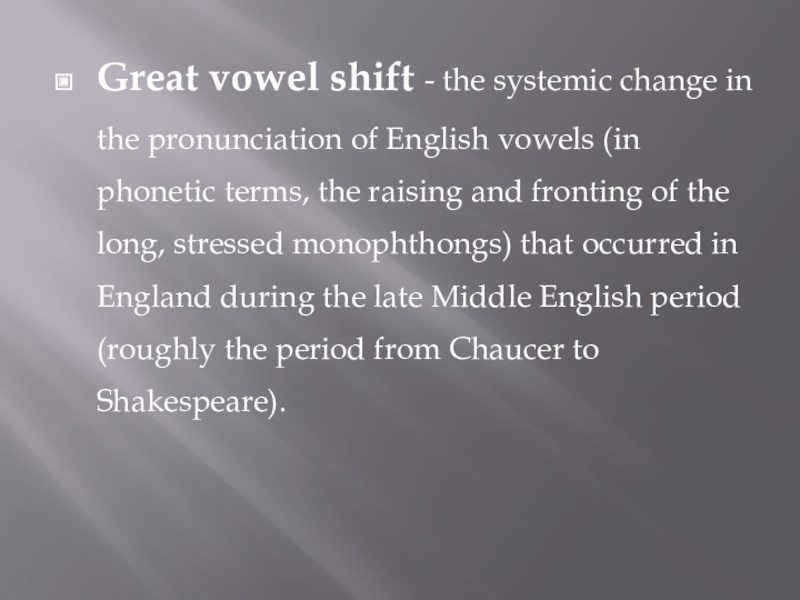
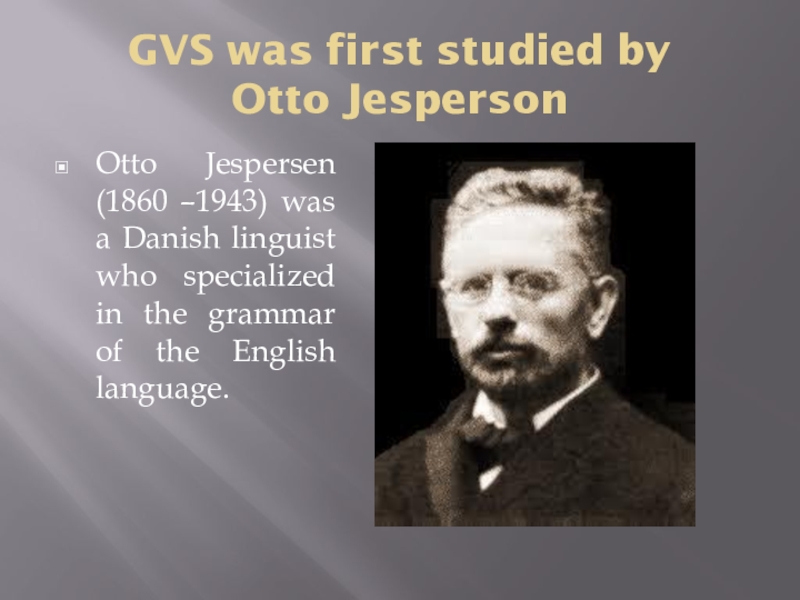
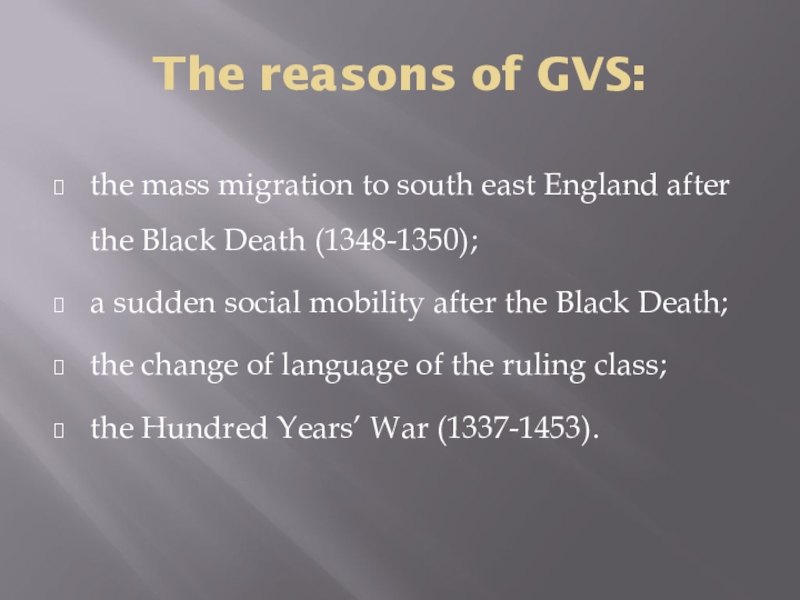
![Презентация по английскому языку Great vowel shift The principal changes:• Middle English [aː] (ā) fronted to [æː] and then The principal changes:• Middle English [aː] (ā) fronted to [æː] and then raised to [ɛː], [eː] and in](/img/thumbs/049c8dea58128468cc4ad27a2f1351e2-800x.jpg)
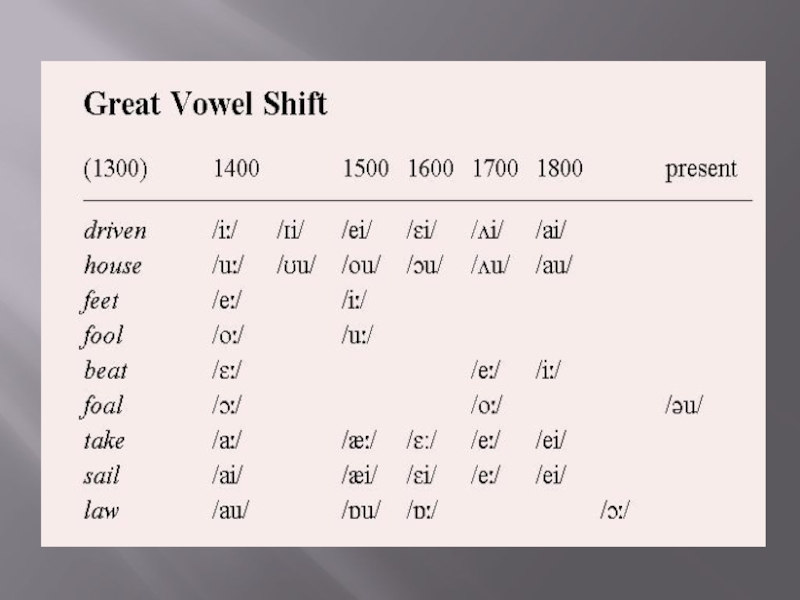
![Презентация по английскому языку Great vowel shift Exceptions:ea [iː] in words great, break, steak, swear, and Exceptions:ea [iː] in words great, break, steak, swear, and bear; the](/img/thumbs/05d01295abbfc456d39697fd41b17f68-800x.jpg)

